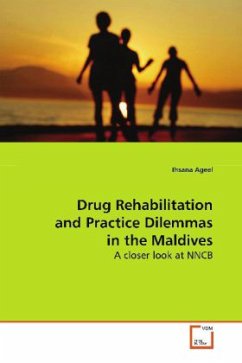Little is known about substance misuse issues or
about the provision of preventative and
rehabilitative services in Islamic nations. This
thesis explores the legal context of such services
in the Maldives and pays particular attention to
tensions between the formal policies of the National
Narcotics Control Bureau and clinical practice.
Findings are drawn from a review of government and
service policy documents, semi-structured individual
interviews with clinical practitioners and senior
administrative staff from rehabilitative services,
and focus group workshops with clinical staff.
Findings show the lack of awareness of the legal and
policy contexts for service provision and the ways
in which existing policy frameworks often detract
from the forging of therapeutic alliances. The
primary concern raised by the analysis is the lack
of involvement of clinical staff in policy formation
and revision. This contributes to series of tensions
and contradictions between official aims for
services and the actual provision of these services.
Further a range of ethical issues arose as a result
of inadequate professional monitoring, training, and
peer review.
about the provision of preventative and
rehabilitative services in Islamic nations. This
thesis explores the legal context of such services
in the Maldives and pays particular attention to
tensions between the formal policies of the National
Narcotics Control Bureau and clinical practice.
Findings are drawn from a review of government and
service policy documents, semi-structured individual
interviews with clinical practitioners and senior
administrative staff from rehabilitative services,
and focus group workshops with clinical staff.
Findings show the lack of awareness of the legal and
policy contexts for service provision and the ways
in which existing policy frameworks often detract
from the forging of therapeutic alliances. The
primary concern raised by the analysis is the lack
of involvement of clinical staff in policy formation
and revision. This contributes to series of tensions
and contradictions between official aims for
services and the actual provision of these services.
Further a range of ethical issues arose as a result
of inadequate professional monitoring, training, and
peer review.








